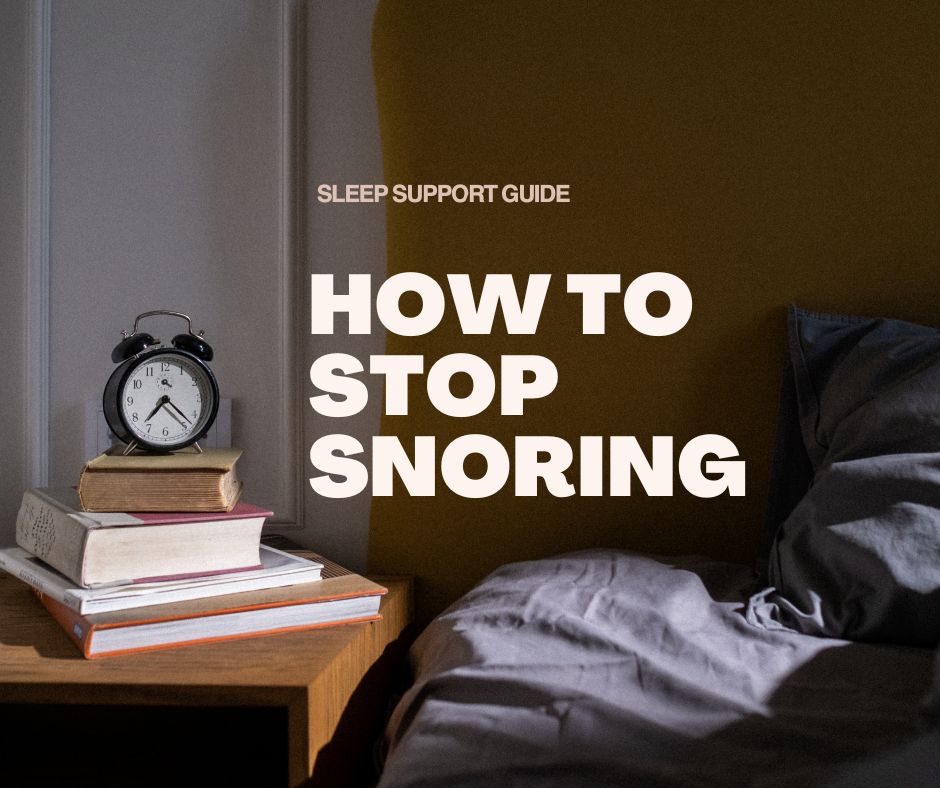Snoring is a common problem that affects millions of people worldwide. Snoring is the sound produced during sleep due to the vibration of the tissues in the airways. It can disrupt sleep quality and cause daytime fatigue, irritability, and even health problems if left untreated. If you or your partner snore, you may find it fast becoming a big relationship issue that you desperately need help resolving.
Causes of Snoring
Snoring occurs when air cannot flow freely through the nose and mouth during sleep. As a result, the surrounding tissues vibrate, creating the snoring sound. Several factors contribute to snoring, including:
- Anatomy: The shape of the mouth, nose, and throat can cause snoring. For instance, a deviated septum, enlarged tonsils, or excess tissue in the throat can obstruct airflow, leading to snoring. These genetic factors can seem like a insurmountable obstacle in your quest for freedom from snoring, however, it is important to establish whether this is a contributing factor.
- Weight: Excess body weight can cause snoring, as it puts pressure on the airways, making it difficult for air to pass through.It might be time to investigate the efficacy and benefits of the ketogenic diet!
- Alcohol and sedatives: Consuming alcohol or sedatives before sleep can relax the muscles in the throat, leading to snoring.
- Sleep position: Sleeping on your back can cause the tongue and soft tissues in the throat to collapse, obstructing airflow and causing snoring.
- Age: As we age, our throat muscles weaken, and the narrowing of airways can make snoring more likely.
How to Stop Snoring
- Change Your Sleep Position: Sleeping on your side can help prevent snoring. Use a body pillow or wedge pillow to keep your body in the right position throughout the night, to stop you from rolling onto your back.
- Lose Weight: If you are overweight, losing weight can help reduce snoring. Losing even a few pounds can make a difference.
- Avoid Alcohol and Sedatives: Avoid consuming alcohol and sedatives before bedtime, as they relax the muscles in the throat and can cause snoring.
- Stay Hydrated: Drink plenty of water throughout the day to keep your nasal passages moist. This can help prevent snoring by reducing congestion and inflammation.
- Practice Good Sleep Hygiene: Establish a regular sleep routine and create a relaxing sleep environment. This can help promote good sleep quality and reduce snoring.
- Treat Nasal Congestion: If you have a stuffy nose, use a saline nasal spray or a neti pot to rinse your nasal passages. This can help reduce congestion and improve airflow.
- Use a Humidifier: Dry air can irritate the throat and cause snoring. Use a humidifier to keep the air moist and reduce snoring.
- Treat Allergies: Allergies can cause congestion, leading to snoring. Use allergy medications or see an allergist to identify and treat your allergies.
- Use Snoring Aids: There are several snoring aids available that can help reduce snoring. These include nasal strips, mouthpieces, and anti-snoring pillows.
- Consider Surgery: If your snoring is severe and other treatments have not worked, surgery may be an option. Surgery can help remove excess tissue in the throat or correct anatomical abnormalities that cause snoring.


